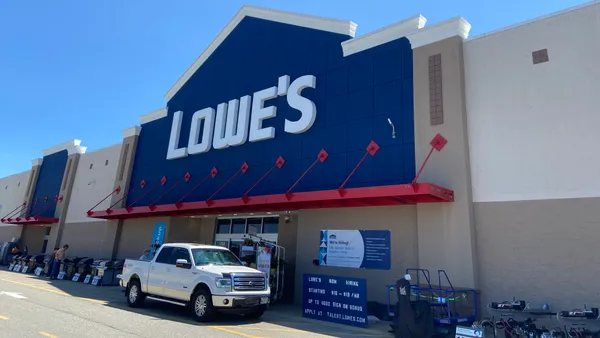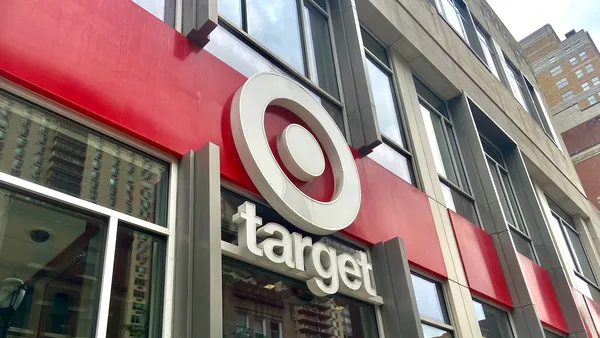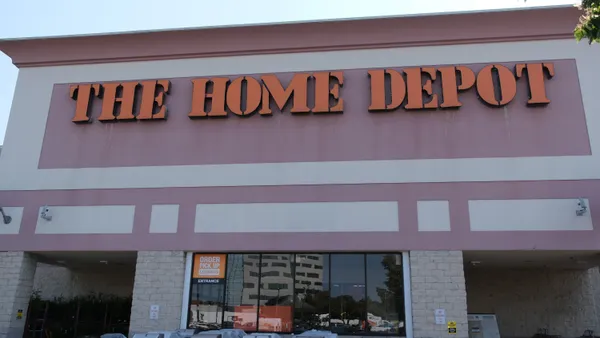Dive Brief:
-
Several U.S. retailers are warning that prices are likely to rise on at least some goods as new tariffs on goods from China take effect on some $200 billion worth of Chinese imports on Monday.
-
The chief executives from the likes of Walmart, Target, Gap Inc. and Best Buy, among others, have warned in recent weeks that price hikes are unavoidable, according to various interviews and conference calls.
-
Tariffs on some $200 billion worth of Chinese imports took effect Monday. The duties are set at 10% but will rise to 25% at the beginning of next year, according to a letter from the U.S. Trade Representative, Robert Lighthizer.
Dive Insight:
Retailers are being forced to squeeze their margins or raise their prices, or both, on a variety of goods just as the holiday season arrives.
"The new tariffs are bad news for the retail sector, especially as the latest round seems to extend the tax to a vast array of consumer goods," GlobalData Retail Managing Director Neil Saunders said in comments emailed to Retail Dive. "Many retailers will now be faced with a difficult choice of whether to pass the cost increases across to consumers or to take a hit on their margins. The exact response will vary from retailer to retailer but, both strategies are likely to be used."
The tariffs exacerbate the effects of other rising costs to retailers, "including more spending on technology, elevated logistics costs, higher gas prices, and rising labor expenses. In short, additional tariffs are the last thing the retail sector wants," according to Saunders.
The duties are hitting a wide assortment of goods, from apparel to appliances. In some cases, retailers are working with suppliers on how to respond to their impact, while others look to shift their manufacturing bases. But those things take time. "Of course, it’s also related to the ability of our vendors to observe the tariffs, and of course we are having negotiations, or over time, usually not in the short term but over time, to diversify the supply base," Best Buy CEO Hubert Joly told analysts last month, according to a conference call transcript from Seeking Alpha. "So, it’s a complex undertaking."
In the shorter term, especially on low-margin consumer goods, price hikes are likely inevitable. "As we said many times, as a guest-focused retailer, we're concerned about tariffs because they would increase prices on everyday products for American families," Target CEO Brian Cornell said last month, according to a conference call transcript from Seeking Alpha. "In addition, a prolonged deterioration in global trade relationships could damage economic growth and vitality in the United States. Given these risks, we have been expressing our concerns to our leaders in Washington, both on our own and along with other retailers and trade association partners."
In a letter to the Office of the United States Trade Representative widely reported in the media last week, Walmart also warned of the impact on consumers as well as the wider economy.
The result of the new tariffs "will be to raise prices on consumers and tax American business and manufacturers," Walmart said in the letter. "As the largest retailer in the United States and a major buyer of U.S. manufactured goods, we are very concerned about the impacts these tariffs would have on our business, our customers, our suppliers and the U.S. economy as a whole."
A company spokesperson added that Walmart has been watching the tariff talks closely and "actively working on mitigation strategies, particularly in light of escalating duties. One of those mitigation strategies is to understand what our suppliers are doing and what their plans and alternatives are."
Gap Inc. CEO Art Peck, meanwhile, told Bloomberg's Emily Chang in an interview that the company is watching the situation closely, but that the implications aren't as great for Gap at the moment because apparel isn't in the crosshairs yet and because Gap itself has diversified its sourcing to other countries. But he too said that prices will ultimately hit the consumer's pocketbook as a result of trade wars.
But Lighthizer, in announcing the tariffs earlier this summer, defended the move. "For many years, China has pursued abusive trading practices with regard to intellectual property and innovation," he wrote in a July statement. "USTR conducted a thorough investigation over an 8-month period, including public hearings and submissions. In a detailed 200-page report, USTR found that China has been engaging in industrial policy which has resulted in the transfer and theft of intellectual property and technology to the detriment of our economy and the future of our workers and businesses."
In the short term, retailers will only have to contend with the lower tariffs of 10%. That, bolstered by a high level of consumer confidence at the moment, spares them the worst at the holidays. But as tariffs rise to 25%, the new year could bring fresh woes. "Should an agreement between China and the U.S. not be found before the New Year, retailers could well start 2019 on a gloomy note," Saunders warned.













